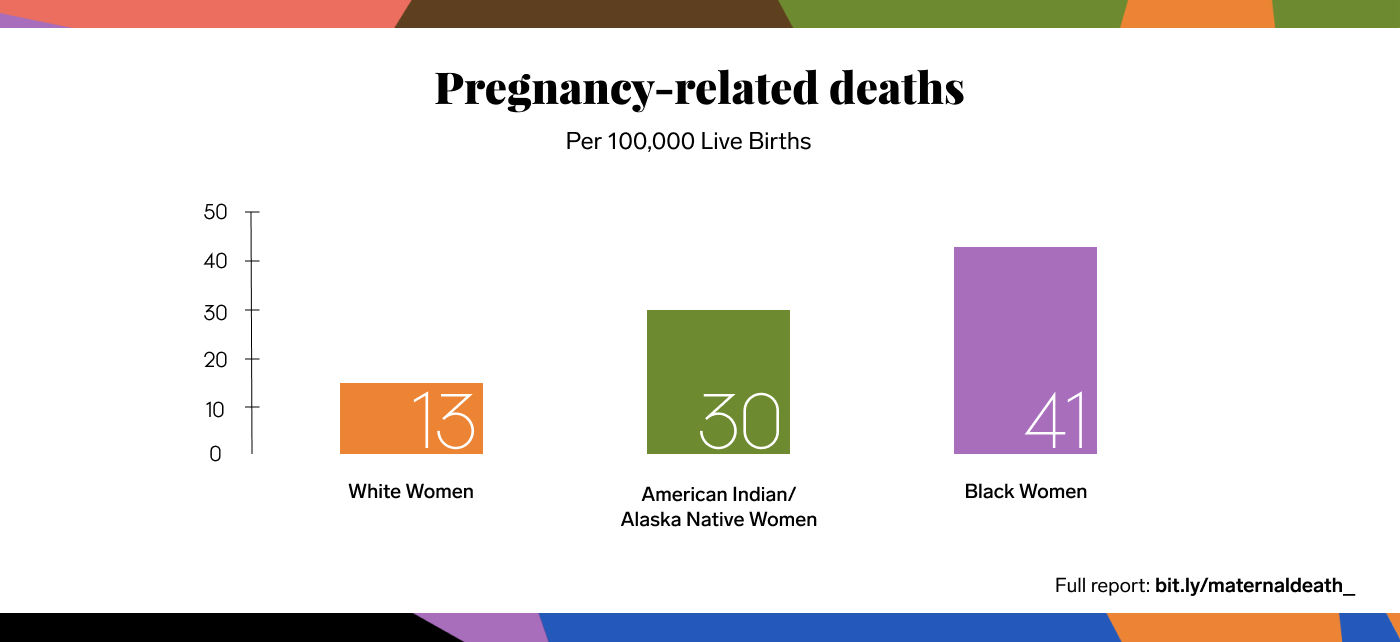By Carrot Fertility
The COVID-19 pandemic shone a devastating light on health disparities within the U.S. As we recognize and celebrate Black History month, Premier Partner Carrot Fertility, a provider of fertility and family-forming benefits, explains how disparities in care influence birth outcomes and how employers can take action.
Significant disparities exist between Black and white people looking to grow their families, from fertility treatment access to prenatal care and birth outcomes. Black women are twice as likely to experience infertility than white women but are almost half as likely to get help. And they’re three times more likely than white women to die from a pregnancy-related cause.
Birth equity is the effort to improve birth conditions and outcomes for all people. Especially in the U.S., employers play a significant role in the kind of healthcare employees can access. That means employers (and especially HR leaders) have the opportunity to help promote birth equity through the resources provided to employees. Let’s explore the important history behind these statistics and the resources employers can implement to help drive change.
Find out more
Birth inequality stems from a legacy of racism
The history of racism in gynecological care can be traced back to John Marion Sims, often credited as the “father of modern gynecology.” His research into methods and tools still used today relied on enslaved Black women, on whom he tested new techniques without their consent.
The cumulative impact of ongoing racism throughout a Black person’s life has a negative impact on health and pregnancy outcomes, regardless of their economic standing.
By operating on Black women with no anesthesia, Sims’ work perpetuated the myth that Black people feel less pain than white people — a belief that persists to this day. Black people’s concerns about general health and pregnancy are still more likely to be dismissed than those of white women.
How can employers help?
Understanding the history behind the statistics is an important place to start. Consider providing educational resources to your people team as part of diversity, equity, and inclusion (DEI) training and support planning.
Unequal outcomes transcend economic backgrounds
 Source: Centers for Disease Control, Morbidity & Mortality Weekly Report
Source: Centers for Disease Control, Morbidity & Mortality Weekly ReportIn some cases, socioeconomic status plays a role in negative health outcomes. Black people are less likely to have access to health services, family planning, or prenatal care. But in the case of Black maternal health, finances alone don’t explain the difference in outcomes. Even college-educated Black women die at higher rates of pregnancy-related causes than white women who didn’t finish high school.
Famous and successful Black women, like Serena Williams, have also spoken about their traumatic childbirth stories and medical treatment. Studies show that the cumulative impact of ongoing racism throughout a Black person’s life has a negative impact on health and pregnancy outcomes, regardless of their economic standing.
How can employers help?
Fertility care is expensive for everyone, and providing financial support makes a significant difference. But because we know socioeconomic status isn’t the only factor influencing Black maternal health, providing access to other resources, such as mental health support, is also important. A therapist can help patients unpack and cope with internalized bias and the cultural considerations that may be impacting their fertility journeys.
Black people have unequal access to fertility care
We touched on some of the negative birth outcomes Black people experience, but for many, unequal access to quality care begins even before pregnancy. One in eight different-sex couples struggle with infertility, and those numbers are almost doubled for Black people.
Finding fertility benefits that include care navigation throughout the process can help, especially if your solution can connect employees with culturally-competent care.
Black women also wait longer to seek help for fertility problems, are more likely to have hysterectomies, and overall have an entirely different experience with fertility than their white counterparts. Black women have reported more difficulty in finding a physician they felt comfortable with, taking time off work for their appointments, and paying for treatment.
Cultural and social factors play a major role in access to fertility care as well. Historically, Black women have been deemed as “hyper fertile” — another damaging stereotype stemming from slavery, when a Black woman’s worth was connected to her ability to get pregnant. Today, many people continue to perceive infertility to be rare for BIPOC people. One study found that the stigmatization of fertility care was a major contributing factor to why some BIPOC women choose to not seek treatment.
How can employers help?
Black people are more likely to experience challenges throughout the family-forming process. They’re more likely to have more unsuccessful IVF treatments, are less represented as adoptive and foster parents, and can have a harder time finding a minority egg or sperm donor.
That means expert guidance is especially important to help Black employees access the care and resources they need. Finding fertility benefits that include care navigation throughout the process can help, especially if your solution can connect employees with culturally-competent care — more on this in our next section.
Culturally-competent care can help improve outcomes
Unequal access to fertility care is influenced by a combination of social, cultural, and economic factors, but providing more culturally-competent care is one way to help improve these outcomes. Culturally-competent care is a system of care that respects cultural differences such as language, communication styles, beliefs, attitudes, and behaviors.
We believe that representation is an important part of the puzzle, and as an employer, you can guide your employees toward culturally-competent care.
Research shows that sharing a racial or cultural background with one’s physician leads to better outcomes, and is necessary to create an equitable healthcare system. Patients of color have higher satisfaction rates and better adherence to medications.
Having Black medical and clerical staff also impacts the quality of healthcare Black people receive. One study found that Black men seen by Black doctors receive more effective care and are more likely to agree to more invasive, preventive services than those seen by non-Black doctors. Black infants are also significantly more likely to be born preterm than white infants but are more likely to survive when cared for by Black doctors.
How can employers help?
Comprehensive fertility benefits can provide employees with access to high-quality, culturally-competent providers and specific information about fertility and pregnancy challenges. Research found that 60% of pregnancy-related deaths were preventable through interventions like patient knowledge, provider support, and healthcare coordination.
We believe that representation is an important part of the puzzle, and as an employer, you can guide your employees toward culturally-competent care. For example, at Carrot, we’ve created a feature for Black and Indigenous people of color (BIPOC) members to request a BIPOC provider, should they choose. As employers, it’s important to make sure employees know their options, and are encouraged to take advantage of what will benefit them the most.
Working toward birth equity should be a priority year round
Moving toward birth equity is a constant cycle of unlearning and learning. For those interested in furthering their education in this area beyond Black History Month, these organizations can help:
- Health in Her Hue works with parents to connect them with culturally-competent care at any point in their lives.
- The Shades of Blue Project offers mental health resources for Black people before, during, and after childbirth.
- The Broken Black Egg emphasizes the Black experience as they empower and advocate for those experiencing infertility.
- Black Mamas Matter Alliance envisions a world where Black moms have support before, during, and after pregnancy.
Providing educational resources, access to culturally-competent care, and inclusive fertility benefits can all help ultimately improve outcomes at every point in the family-forming process. Whatever resources you choose to provide, remember that reaching birth equity is an ongoing process and conversation. Keep listening to the lived experiences of your employees: they’re your best resource for understanding your impact and expanding your support.
Learn more about how Carrot’s inclusive fertility benefits can support your employees.
Disclaimer: The views expressed in the article are those of third parties. They do not purport to reflect the opinions or views of Collective Health or its members.



